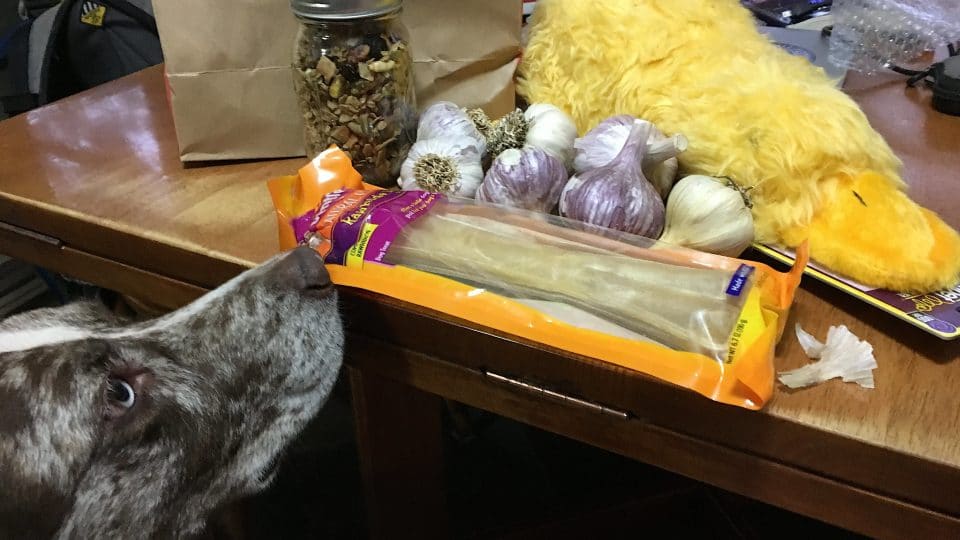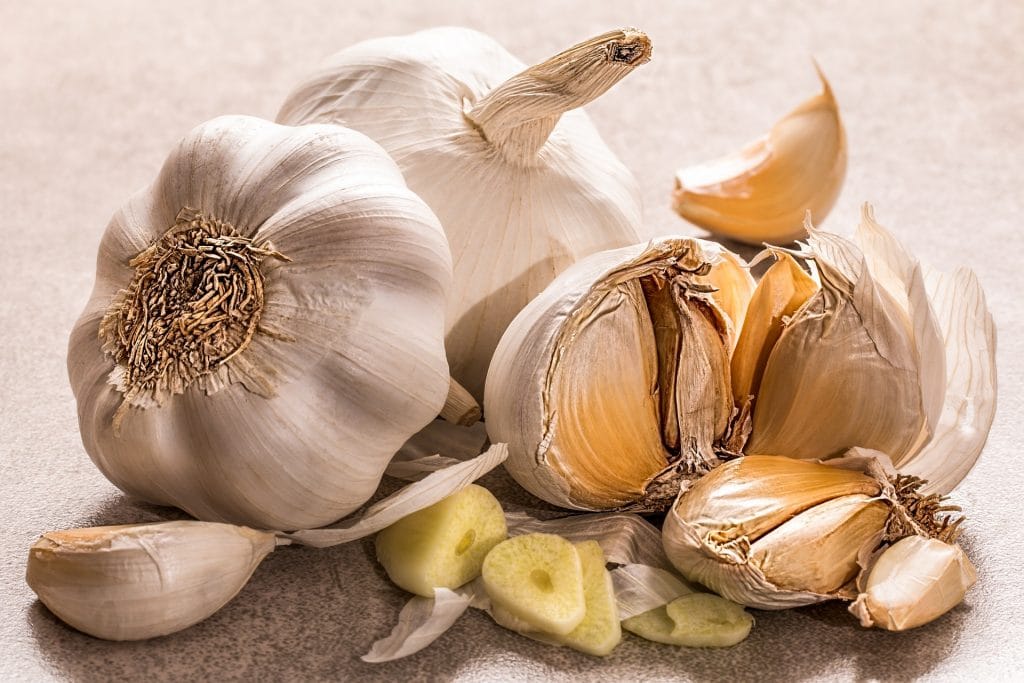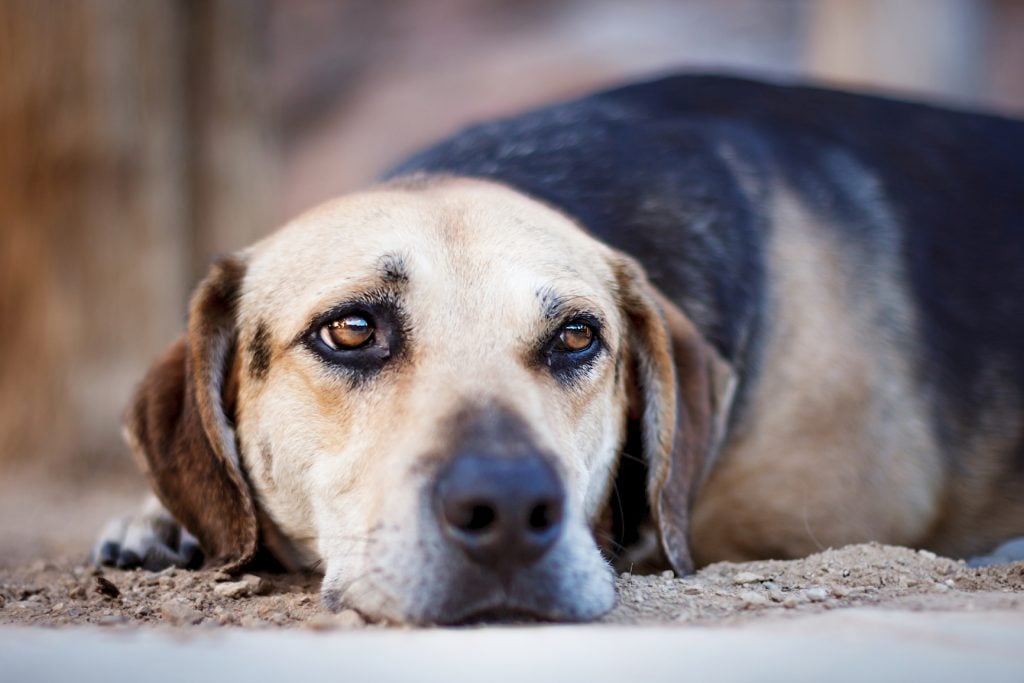- Not a substitute for professional veterinary help.
The holidays are fast approaching, and it’s an exciting time to cook and get together with loved ones. Your dog probably loves all the tantalizing smells coming from the kitchen, but before you give them a bite of human food, consider the ingredients.
Not all compounds in human food are considered safe for dogs to eat. Some, especially in large quantities, could result in serious physiological changes in dogs’ bodies. Garlic is one such vegetable that can pose a threat to your pet’s health. Read on for more about garlic toxicity in dogs and what can be done to treat and prevent it.
Why Garlic Is Dangerous to Dogs
Garlic (Allium sativum) is a member of the plant Allium genus; other members of this genus include leeks, chives, and onions. Whether this vegetable is cooked, raw, in seasoning, or mixed with food, it can be toxic to your pet if they consume too much.
Species of this plant contain an organosulfur compound that causes a series of oxidative reactions that overwhelm the antioxidant properties of your dog’s red blood cells. This can change the shape of your dog’s red blood cells and lead to Heinz body formation. These changes result in unhealthy, fragile red blood cells that can rupture.
When red blood cells break apart, less blood oxygen can be carried to your dog’s tissues. Otherwise known as anemia, this condition can cause your dog to look and feel very tired because they’re not getting the energy and oxygen needed to effectively use their organs and muscles.
Signs of Garlic Poisoning in Dogs
- Weakness
- Lethargy
- Bad breath
- Nausea: this looks like drooling in dogs
- Abdominal pain: guarding the abdomen or hunching over
- Vomiting
- Diarrhea
- Red tinged urine
- Increased respiratory rate or panting
- Pale gums
- Exercise intolerance
- Collapse
Susceptible Traits
The following traits can make certain dogs more susceptible than others to garlic toxicity.
- Japanese breeds: Shiba Inu and Akita
- Glucose-6-phosphate dehydrogenase deficiency
- Zinc deficiency
- Treatment with certain drugs (ex. Tylenol) or other compounds
My Dog Ate Garlic—Now What?
If you suspect your dog has eaten garlic, take them to the emergency veterinary hospital as soon as possible. They’ll be able to safely make your dog vomit and monitor for signs of anemia. This should occur immediately after intake.
If it has been a day or more—and you’re starting to see the signs listed above—you should still take your dog to see a veterinarian right away for treatment and blood monitoring. The prognosis for garlic toxicity depends on how much of the plant was consumed, the severity of clinical signs, and when treatment started. There’s no antidote for garlic toxicity.
Remember that it’s the dose that counts, so one-time ingestion of a small piece of diced garlic is not enough to cause severe anemia in your dog. However, eating a plate full of garlic cloves or a bulb of garlic is a cause for concern. Additionally, repeated small doses over time can cause toxicity.
The higher the dose, the more severe the signs of toxicity. If your dog is more susceptible to garlic poisoning, then smaller doses of garlic can still lead to toxicity.
How to Prevent Your Dog From Eating Garlic Again
It’s difficult to keep food that’s seasoned with garlic away from your dog, especially since it has such a distinct aroma. We often think that if foods are unsafe for our pets, they won’t eat them—but in truth, dogs can be indiscriminate eaters.
Keeping garlic foods, supplements, powders, and plants away from your dog is the best prevention.
- Put herbs, spices, and raw vegetables in high cupboard locations out of reach from your pet.
- Communicate to everyone in the household and visitors not to share their human food (ex. garlic fries, soups, stir fry, etc.) with pets.
- Place a fence around garden vegetables, which will also keep other critters from eating them.
- Lastly, watch what gets dropped on the floor, as any scraps can be easily vacuumed up by your dog.
Don’t forget: seeking veterinary medical attention if there’s suspected ingestion of garlic is always the safest method of treatment.
Featured Image: Flickr@AlanLevine




